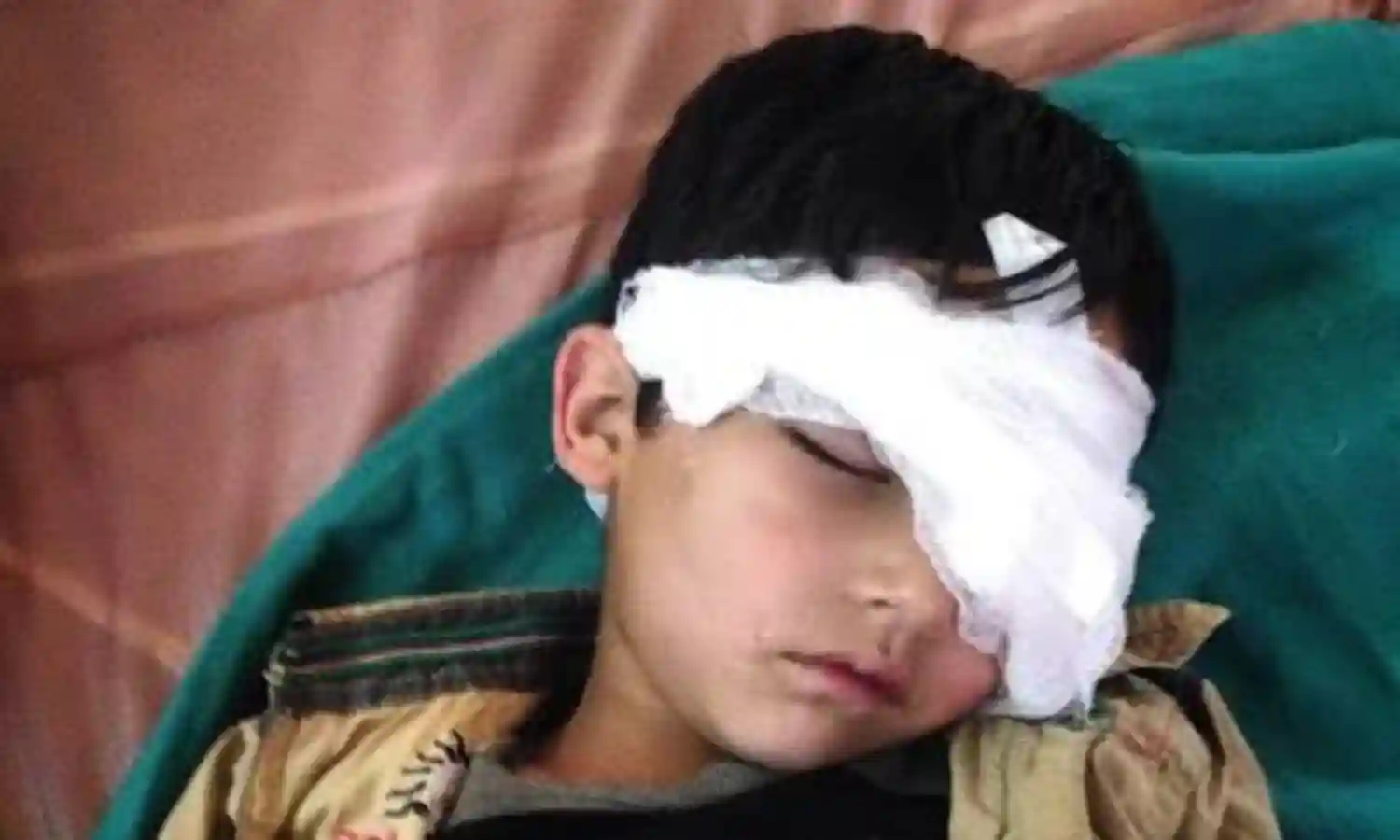Amnesty Postcard Campaign Against Pellet Guns In Kashmir
Online petition for CM Mehbooba Mufti
SRINAGAR: Following global outrage over the indiscriminate use of pellets against civilian protesters, Amnesty International today launched a postcard campaign advocating complete ban on the use of pellet gun in Kashmir Valley.
Officials said the campaign demands an independent investigation into cases of killings or serious injuries caused by the use of pellets against protesters in Kashmir. The human rights watchdog will submit signed postcards and a petition to Chief Minister Mehbooba Mufti.
“Pellet-firing pump-action shotguns have been responsible for killing, blinding and injuring thousands of people in Kashmir. The campaign aims to bring people from across Jammu and Kashmir to write postcards to the state Chief Minister Mehbooba Mufti,” said Amnesty International India, while launching the campaign and online petition.
Aakar Patel, Executive Director, Amnesty International India said the pellet gun, commonly used in bird hunting, has caused widespread damage and its repeated use has produced a generation of victims, many of whom have lost eyesight in both eyes.
“The use of pellet shotguns is inherently inaccurate and indiscriminate. These so-called ‘non-lethal’ weapons have killed at least 14 people since July 2016. Thousands more have suffered extensive and debilitating physical and psychological harm. It is unconscionable for authorities to continue using pellet-firing shotguns despite being aware of the damage they cause,” Patel said.
“The use of pellet shotguns violates international standards on the use of force including the UN Code of Conduct for Law Enforcement Officials, the UN Basic Principles on the Use of Force and Firearms, and other laws. The state government must immediately put an end to their use so as to live up to the international commitments of the country,” he said.
The Amnesty said it wants to send a message to the state government that the people of Kashmir want an immediate end to the use of pellet-firing shotguns. “The voices of the victims and those who stand in solidarity with them must be heard,” said Zahoor Wani, Campaigner, Amnesty International India.
First introduced during the unrest of 2010 when over 120 civilians, mostly teenagers, were shot dead in retaliatory action by security forces against protesters, the liberal use of pellet guns to control the protests of 2016 sparked a global outrage as more than 900 protesters were reported to have suffered damage in one or both eyes.
More than 300 tiny metallic balls are sprayed indiscriminately over a wide area by a single 'pellet bomb'. Amnesty says there is no way to control the trajectory or direction of the pellets while the police had placed orders for deflectors to be used on the gun purportedly to guide the pellets below the waist line of the target.
An Amnesty report released in September last year, “Losing Sight in Kashmir: The Impact of Pellet-Firing Shotguns”, documented 88 cases of victims whose eyesight was either temporarily or permanently damaged by metal pellets fired by security forces between 2014 and 2017.
During the ongoing budget session, the state government admitted in the legislative assembly that 6,221 persons had received pellet shotgun injuries, including 782 eye injuries, between July 2016 and February 2017. However, rights groups based in Kashmir believe that the actual numbers are much higher.





